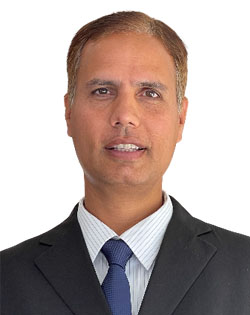Dr. Asif's Breakthrough Paper on ESG and Industry 5.0 Accepted in Technological Forecasting and Social Change
The Environmental, Social, and Governance (ESG) principles have taken center stage
in the
research domain focusing on leveraging technological innovations in corporate sustainability.
Dr.
Muhammad Asif, an Associate Professor at Northeastern State University, has made a
remarkable contribution to this area with his paper titled “ESG and Industry 5.0:
The Role of
Technologies in Enhancing ESG Disclosure.” This paper is published in Technological
Forecasting and Social Change, an “A” category journal per the ABDC list with an Impact
factor
of 12.
ESG has become instrumental in evaluating the non-financial performance of businesses,
and
many segments of consumers, investment managers, and risk managers use these criteria
for
decision-making. Dr. Asif’s paper takes a broader perspective, exploring the possibilities
presented by emerging technologies in enhancing ESG disclosure. The paper highlights
that the
values of Industry 5.0 are aligned with those of ESG, and therefore, emerging technologies
encapsulated in the Industry 5 framework can be employed in ESG. In particular, technologies
like blockchain, digital twins, sensors, RFID, simulations, and cloud computing applications
can
enhance ESG reporting authenticity. Some other sophistication in ESG reporting that
can ensue
from the application of Industry 5.0 are enabling prospective reporting instead of
retrospective
reporting, customizing ESG reports, and extending the scope of reporting to multi-tier
supply
chains.
Dr. Asif’s work has already been featured in prestigious publications such as IEEE
Transactions
on Engineering Management, Transportation Research – Part E, International Journal
of Physical
Distribution and Logistics Management, Journal of Cleaner Production, Management Decisions
Journal, Total Quality Management and Business Excellence Journal, Quality and quantity
journal, European Business Review, International Journal of Quality and Reliability
Management, TQM Journal.
He is committed to advancing research in this area to create a more sustainable future.
His
research not only contributes to the academic discourse but also guides policy-making
for a more
sustainable future.


